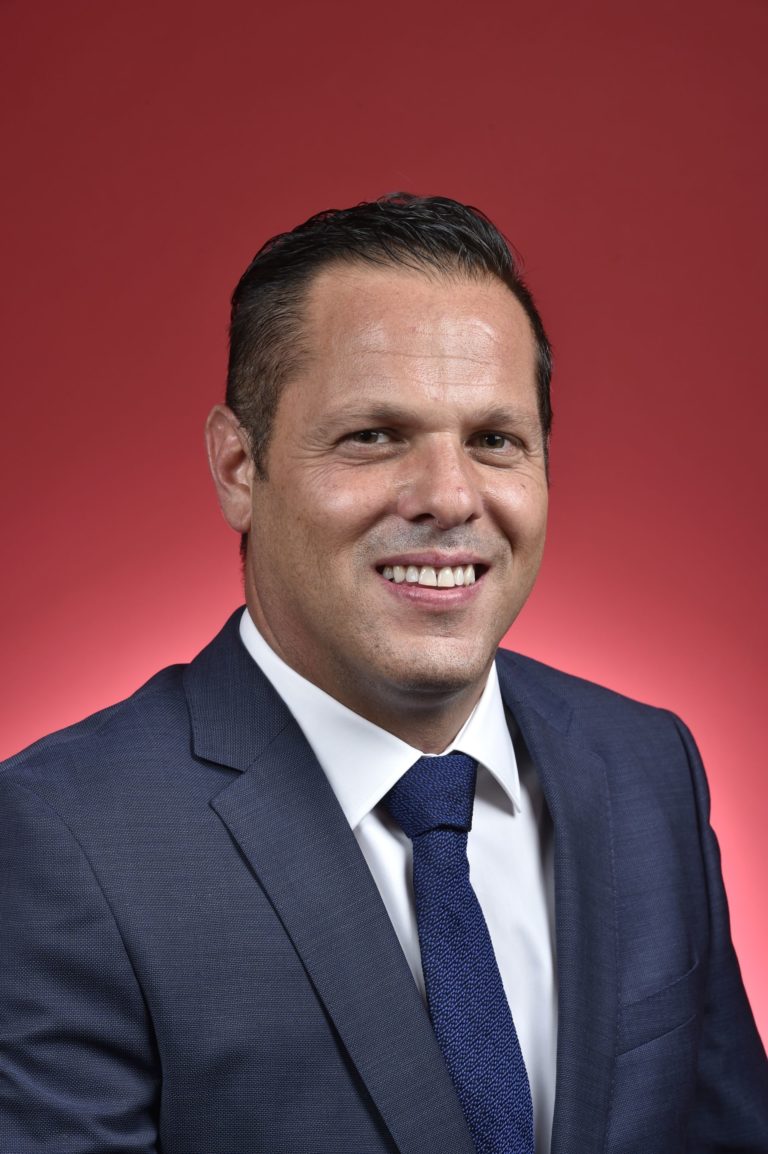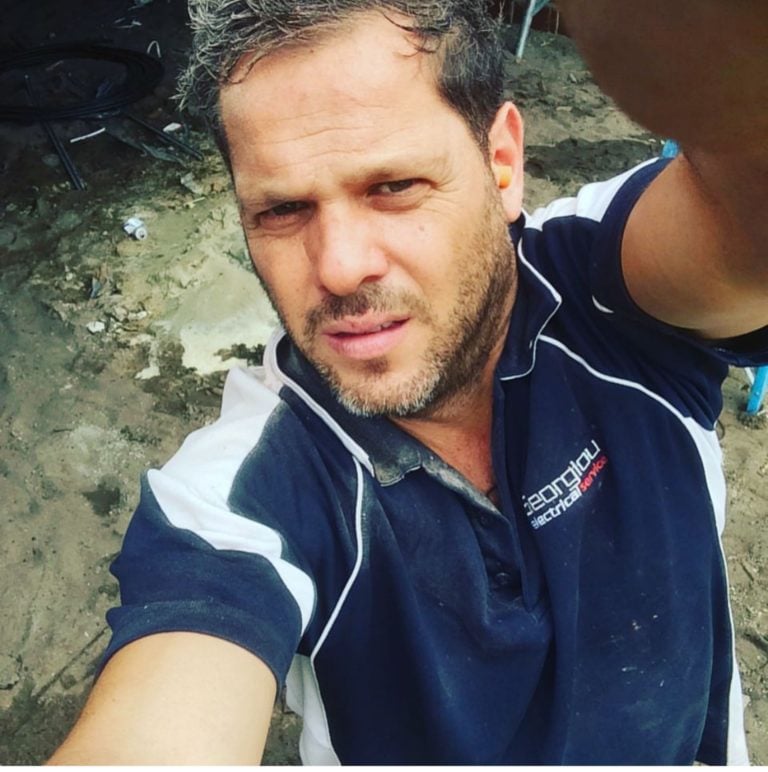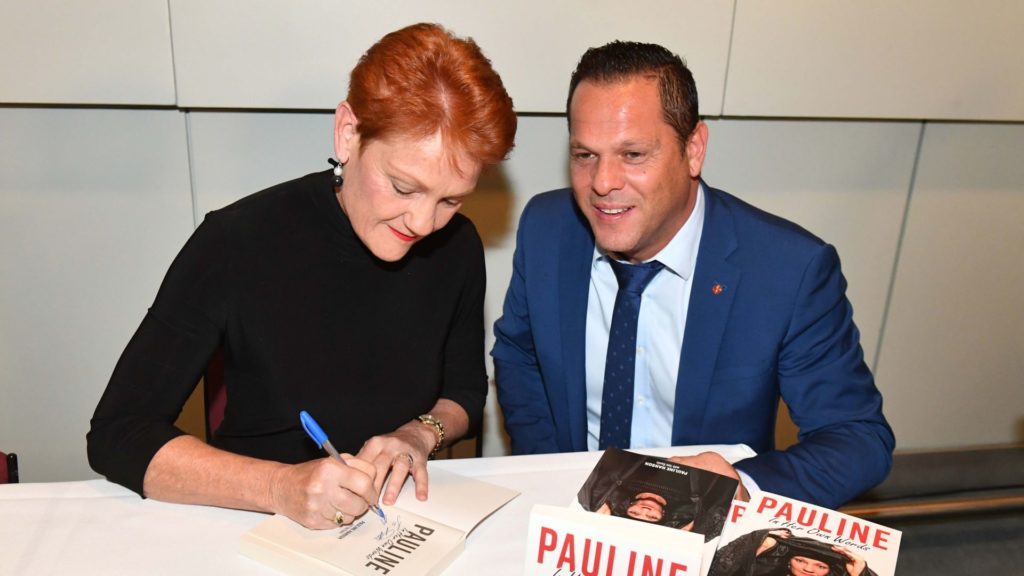“But what is politics then if not to give both parts the chance to compromise themselves,” the cynical and reactionary Naphta asks the progressive and enlightened Settembrini in one of the dialogues in Thomas Mann’s masterpiece, The Magic Mountain.
In this instance they discuss the shape of Europe on the eve of the collapse of the Ottoman Empire and hold opposite views on the nature of politics and moral norms.
The prelude of this interview with the young Greek Australian politician Peter Georgiou was written in the informative brochure distributed by his office to the people of Western Australia, whom he represents in Parliament as a senator of Pauline Hanson’s One Nation.
In addition to his political program, his commitment to serve the interests of the state he represents, he promises his constituency that he is ready to help anyone with issues relating to tax, healthcare, retirement and (keep calm, folks) migration.
So what is Peter Georgiou, the admirer of Paul Keating, the senator who recently helped a sparkie from Sri Lanka working in Australia with a 457 visa to get permanent residency doing in One Nation, a party that created and built an important part of its political capital on anti-immigration rhetoric and policy?
Is his presence there is an act of political compromise that can -as Mann argues- produce positive outcomes for his fellow citizens or… himself? After all, he did managed to become a senator.
It is not easy to draw any conclusions yet
On the occasion of the one-year term since he assumed the senator’s duties after the demise of his brother-in-law, Rod Culleton, whose election was overturned by the Supreme Court, and while bearing in mind his party’s stance, we spoke to Senator Georgiou.

A CHILD OF MIGRANTS WHO WAS NOT ALLOWED TO SPEAK ENGLISH AT HOME
“My parents are from Evia and Etoloakarnania, grew up in Athens and migrated to Australia in 1972 with my two older sisters. I was born later in Perth. Getting an education was very important for us. My siblings went to university, but I followed my father’s profession. He was an electrician and I used to help him during the weekend and I kind of liked doing this job so I took the same path. I worked for my dad for a while and then I started my own electrical contracting business. At home we spoke Greek and I still speak Greek to my parents, you know, just to keep the language alive.”
While he describes himself as nothing out of the ordinary, in reality Georgiou belongs in a “rare breed” of politicians these days. Out of all our state and federal representatives in parliament only 0.5 per cent have had, as they say, real-life experiences, or have been in the workforce earning their bread and butter as electricians, builders, or plumbers.
The reasons behind this phenomenon have been discussed to a great extent, and it is widely accepted that it is almost impossible for a tradie to ‘break the glass ceiling’ of the political class which is crowded by businessmen, lawyers and political staffers.
It is also pretty clear that the vast majority of tradies and others of similar vocations are not really keen to become politicians.
Georgiou, however, is not your next door tradie.
“I’ve always had an interest in politics, since I was a teenager. I always kept an eye on what was going on, during the Howard years, during the Keating years, during the Hawke years. Α lot of the topics around the family table or during family gatherings was about politics. Believe it or not I had a wish that maybe one day I could get involved. So the opportunity came up, I put my hand up and here I am.”
It sounds like changing a bulb, and in his case it probably is like that since Georgiou does not have any experience nor has he ever held any positions in local or state government. He came second in the ballot in Western Australia, and when Culleton was ousted he just cruised into the Senate.
“I was never involved in the union movement or been a member of a party. I was kind of a swing voter, voting on the basis on what was promised and the parties said they are going to do but more on the conservative side. I was a bit more conservative than my parents were, who might had been Labor supporters. I cannot be sure about that though.”
HOW ON EARTH???
So why on earth does a migrants’ offspring join One Nation?
“The appeal with One Nation started for me when I saw things change in Australia in a lot of industries. Being a tradesman and speaking to other tradesmen who been around working for 30, 40 years on the same jobs, they were saying that their opportunities and their income has dropped because of certain changes in society.”
So you attribute these ‘certain changes’ to migrants and not economic conditions or policy?
“I think it is a bit of both. Yes there are changes in the industry but there is also migration. Two mainly affected industries in WA were the tiling industry and the ceiling fixing industry where they just couldn’t compete anymore because they had people coming over here and just undercutting them, working for basically peanuts, and working 20 hour days. And this was what a lot of the tradesmen told me. One for example was telling me that what these guys are charging what we were charging 20 years ago.
“I think we are representing these people more than any other party because we put the people who live in this country before bringing in other people. We all live here, we all try to make a living and I think people who are in this country including myself, including my parents who came over, we are very lucky to be here in Australia, so those policies for putting Australia first were appealing to me and also seeing what is happening in my trade but not as much. Our party is not against migration, it is in favour of controlled migration Who does not want to come to Australia? We all want but we must first ensure a sustainable future for our citizens. This is what the Turnbull Government is doing right now.”
He is right when he says the Turnbull Government has begun slowly and steadily to promote a reduction in the number of immigrants that Australia receives, but as he tries to use moderate terms to describe the One Nation’s stance in migration, his leader wore a burqa into in the Senate, and her racist rhetoric against migrants is still valid. She uttered her political mantra in her maiden speech in the Senate in 1996 when she said that “Australia is in danger of being swamped by Asians” and repeated it in the same room in 2016 when she restated that what she said in her first speech is still very relevant.
But while he talks about adherence to party policies and the appeal One Nation had on him, he goes his own merry way playing a pivotal role for a Sri Lankan electrician to secure permanent residency, or going against his party policy line saying after the burqa-in-the-Senate incident that he is not against Muslims migrating to Australia as long as proper procedure is followed.
Please explain?
“Edwin’s case was different. And I had no problem with my party leadership that I helped him. Now as far as the burqa incident, Pauline was trying to make a point. I did not know she was going to do that and I was [as] surprised as everyone else. A lot of countries in Europe have banned the burqa and the point she was trying to make is that if you wear the burqa and your face is covered then you do not know the identity of that person.”
The explanation about his actions comes not from the above statement but from his answer to an irrelevant to policy question, about what he finds most gratifying about his new job.
“The most rewarding part of the job is when someone comes up with a problem and while they had been through other channels and came against brick walls you’ve kind of pushed with it and you’ve gone to the parliament with it and go to the relevant authorities and you manage to resolve their issue and served this person. Like saving the Sri Lankan electrician from being deported.”

You went against party policy then; are you willing to do it again to help one of your constituents?
“Look, the good thing of our party is that we were given the freedom to do what we have to do for our state. It is different here in WA than it is in Queensland, and Pauline has given us the freedom to do our best for our state, we represent our state and sometimes we can go against party policy if it is for the best results for our state.”
It is quite rare for a politician, and refreshing at the same time, to hear a statement like this which, by the way, he put it into practice in the past while it remains in the realm of the unknown if he will repeat similar actions in the future.
Perplexed about his fascination over Paul Keating I ask him the reasons behind it.
“I liked him because of the way he talked, he was very quick with his responses, quite funny, and very smart. He was someone that I grew up with, he was everywhere. You couldn’t not like him.”
It would be pointless to ask him whether he would want one day to become a prime minister. All politicians dream about that moment regardless of whether they admit it or not. The conclusion to this interview comes by asking him to be as quick, and brief as his idol prime minister by stating his opinion of the following politicians.
He laughs with embarrassment but accepts the challenge.
- Malcolm Turnbull: He lost his way.
- Bill Shorten: He tries hard.
- Donald Trump: He has not proven what he can do yet.
- Vladimir Putin: Dynamic leader.
- Alexis Tsipras: I feel sorry for him.
- Tayip Erdogan: Trying to become a dictator.









